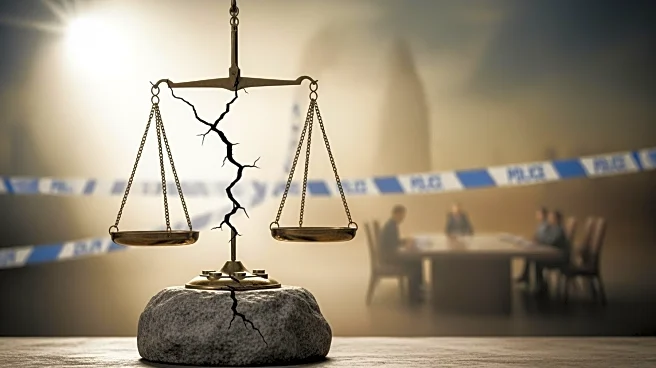What's Happening?
Brazil's Supreme Court has ordered the preemptive arrest of former President Jair Bolsonaro, who is set to begin a 27-year prison sentence for attempting a coup after losing the 2022 presidential election.
Many Brazilians, including Simone Guimarães, who lost several family members to COVID-19, feel a sense of vindication from Bolsonaro's conviction. Although the legal case against Bolsonaro is not directly related to his pandemic response, his actions during the pandemic, such as mocking patients and downplaying the severity of COVID-19, have left a lasting impact on the country. Bolsonaro's popularity declined significantly during the pandemic, contributing to his electoral defeat in 2022.
Why It's Important?
Bolsonaro's conviction is significant as it represents a form of justice for many Brazilians who suffered losses during the pandemic. The conviction highlights the broader implications of political leadership during health crises and the importance of accountability. Bolsonaro's denialist stance during the pandemic and his resistance to public health measures have been criticized for contributing to Brazil's high COVID-19 death toll. The case underscores the need for effective leadership and public health policies in managing pandemics, and it may influence future political dynamics in Brazil.
What's Next?
The conviction may lead to further investigations into Bolsonaro's actions during the pandemic, as the Supreme Court has ordered police to expand the investigation into his administration's handling of COVID-19. The political landscape in Brazil may continue to be polarized, with Bolsonaro's supporters and opponents remaining divided. The case could also set a precedent for holding political leaders accountable for their actions during health crises, potentially influencing public policy and governance in Brazil.
Beyond the Headlines
Bolsonaro's conviction raises ethical questions about the responsibility of political leaders in protecting public health and the consequences of prioritizing economic interests over human lives. The case may prompt discussions on the role of misinformation and denialism in exacerbating health crises. It also highlights the cultural and societal impact of the pandemic on Brazil, as families remain divided over political allegiances and the handling of COVID-19.









